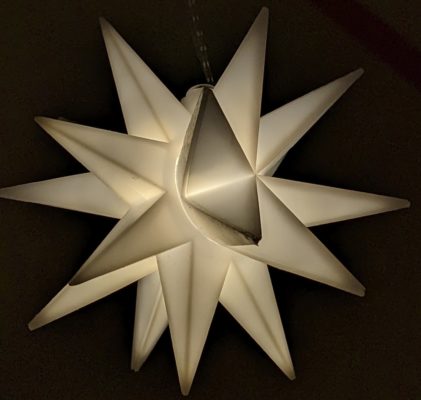
Dear Climate enthusiasts, dear EGU lovers,
dear early and senior climate scientists,
I write to you in the second of two very challenging years for each and everyone of us. We faced many difficulties, hardships, and maybe even some opportunities and it is the time of the year to reflect on that. For geoscientists it is also the time of the year to plan the next conferences and consider what to submit to the next EGU General Assembly, which will (hopefully) take place in a hybrid format in Vienna and online! With all the great sessions that are proposed, I would like to highlight some that have been submitted by our early career scientists, which always hold a special place in every EGU heart! The programme of the Climate Division at the General Assembly is divided into nine session categories from palaeoclimatolgy to future climates, tools and modelling:
CL1.1 Deep Time
Check out the session Deep-time climate change: insights from models and proxies by Jean-Baptiste Ladant and co-convener to understand the fundamental questions of Earth System feedbacks and their sensitivity.
CL1.2 – Last ~2.6 Ma
Present your geoarchaeological research in Integrating stratigraphy, sedimentology, paleoclimate and human evolution in- and out of Africa by Annett Junginger et al. Dive deep into Speleothem and Continental Carbonate Archives of Modern and Palaeoenvironmental Change in the session by Sophie Warken and co-conveners. To get up to speed with The state-of-the-art in ice coring sciences please visit the session by Michael Dyonisius and colleagues.
CL2 – Present Climate – historical and direct observations period
Present your work about Synoptic Climatology, which examines atmospheric circulation dynamics and their relationship with near surface environmental variables in the session by Jan Stryhal and co-conveners.
CL3.1 – Climate change: from regional to global
Check out the session Detecting and attributing climate change: trends, extreme events, and impacts by Aglae Jezequel and colleagues. By considering studies over a wide range of temporal and spatial scales they aim to identify new methods and current challenges.
CL3.2 – Climate and Society
Submit your research on Climate Change as a Systemic Risk in the session by Kai Kornhuber et al. if you focus on risk assessment, causes of systematic risk and compex interactions of extreme weather event among others. Present your research in the session Understanding and quantifying low-likelihood weather and climate extremes by Timo Kelder and co-conveners. This session aims to bring together communities from weather prediction, climate projection, hydrology to impact and risk management, and to learn from the variety of methods to understand and quantify low-likelihood extreme events in the present and future climate.
CL4 – Climate studies across timescales
Do you work on Land–atmosphere interactions and climate extremes? Then check out the session by Wim Thiery et al. If you are interested in climate model simulations, then the session by Laura Suarez-Gutierrez and colleagues might be a gem for you: Large Ensemble Climate Model Simulations as Tools for Exploring Natural Variability, Change Signals, and Impacts. For those who focus on the Indian Ocean, the session The Indian Ocean and its role in climate variability and predictability by Muhammad Adnan Abid et al. will catch you eye. Finally, for those who analyze the energy transfers between and within climate components, please have a look at Energy and dynamics in the climate system by Roberta D Agostino and colleagues.
CL5.1 – Tools for Climate studies
There are a bunch of sessions focussing on climate research tools. Here, we would like to highlight the session by Christopher Smith et al. titled Emulators and simple climate models: development and applications. Moreover, the session Geochronological tools for environmental reconstructions by Kathleen Wendt and colleagues will be of interest for every lover of geochronology. The session Downscaling: methods, applications and added value by Marlis Hofer et al. highlights the importance of downscaling techniques for regional climate models.
CL5.2 – Archives and observations
The session Applications and advances in proxies for palaeofire reconstructions by Benjamin Keenan and colleagues invites abstracts that contribute to the understanding of fire regimes in the past as well as how fire regime changes relate to changing anthropogenic land use such as land clearance for agriculture. Moreover, the session Reconstructions of Holocene sea-level changes from high to low latitudes by Geoff Richards and co-conveners encourages submission of research using sedimentological, biological and archeological indicators, chronological techniques, and statistical models.
CL5.3 – Theory and modelling
Our final gem for today is the session Predictions of climate from seasonal to (multi)decadal timescales (S2D) and their applications by Leonard Borchert and co-conveners that investigates predictions of various climate phenomena, including extremes, from global to regional scales, and from seasonal to multi-decadal timescales.
These sessions highlight all the great work that early career scientists put into the preparation of the General Assembly and I hope that you found some sessions that encourage you to submit your exciting research. As December is usually a busy time with finishing up loads of things, I can only wish you to take care of your mental health, enjoy the Christmas spirit(s), and finally have a nice holiday break! Remember, only with it, you can start fresh and motivated into 2022, so please leave all your papers and reviews in the office, turn off your computer and spend some time with your loved ones!
Yours, Janina

Irka Hajdas
Great overview of sessions! Thank you Janina for this timely input!
Gerald Ganssen
Good to see that the original spirit from the time that Climate: Past, Present, Future was founded as an Interdisciplinary Working Group in 1992 (indeed 30 years ago, Happy Birthday CL) as part of the EGS which was joined with EUG to form the EGU in 2002 (indeed 20 year ago, Happy Birthday EGU) , has become even stronger and the next generation is taking over!
Whishing everyone this good spirit and a well balanced 2022!